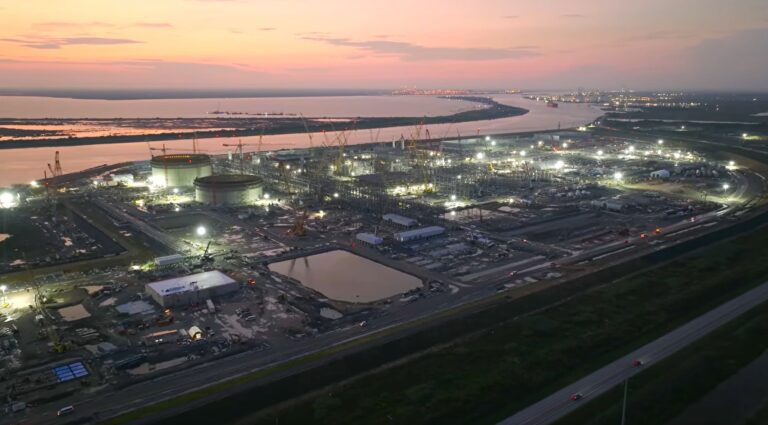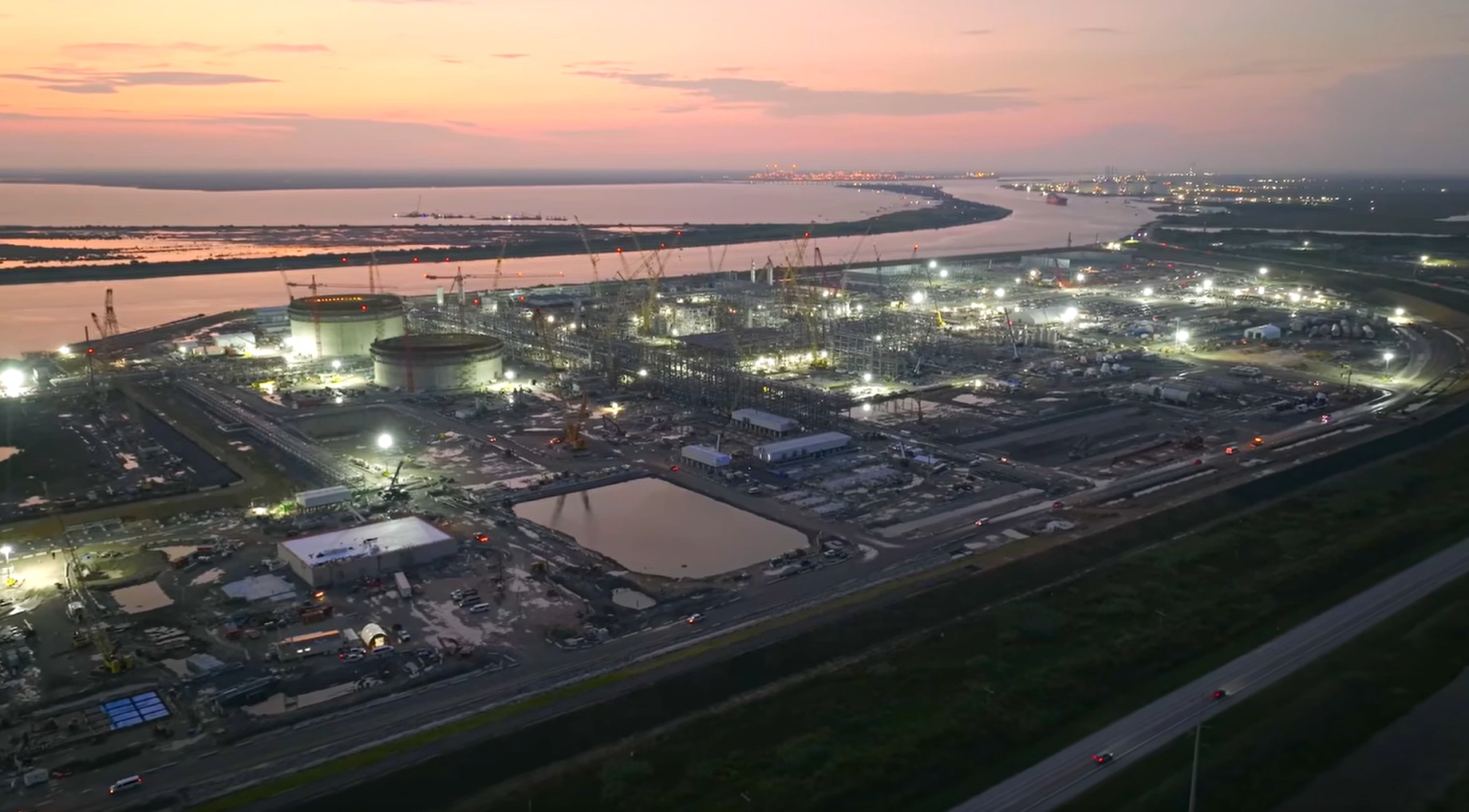Bechtel Energy, an American engineering, procurement, construction, and project management player, has shed light on a fatal incident in which three workers lost their lives and two were injured while working on a liquefied natural gas (LNG) export terminal under development in the Lone Star State, United States.
 Port Arthur LNG construction site; Source: Sempra Infrastructure via LinkedIn
Port Arthur LNG construction site; Source: Sempra Infrastructure via LinkedIn
Bechtel Energy, which was recently selected to deliver the engineering, procurement, and construction (EPC) scope of work for the Port Arthur LNG Phase 2 project in Texas that Sempra decided to develop as the $14 billion expansion to double Port Arthur LNG Phase 1’s capacity, for which the American contractor secured an EPC contract in 2022, has shared its findings in relation to an incident related to the work on this project.
The company explains that the purpose of the report is to promote transparency, accountability, and learning, helping anticipate risks and act proactively on safety.
Craig Albert, Bechtel’s President & COO, and Paul Marsden, Bechtel’s President of Energy, have issued a statement to employees, expressing their grief over the loss of three workers and reaffirming the company’s commitment to safety, following an incident that occurred five months ago while a five-person crew at the Port Arthur LNG facility was performing tank work at elevation when the climbing formwork system on which they were standing gave way.
As a result of the accident on April 29, 2025, three workers – Reginald Magee, Felipe Mendez, and Felix Lopez Sr. – lost their lives, while two others were injured. The company issued a report it described as “a detailed account of what went wrong,” along with the actions it decided to take to address its “shortcomings,” highlighting that there was “no single, isolated cause of the incident” as it identified “multiple contributing factors.”
Albert and Marsden emphasized: “The overwhelming sense of shock and grief we felt in that moment hasn’t faded. As we said at the time, ensuring every colleague returns home safely at the end of each day has always been—and will always be—our highest calling. Our goal at Bechtel is zero workplace incidents, and anything short of that is unacceptable.
“In the wake of the incident, we committed to understanding how this devastating loss could happen. We’ve been cooperating fully with the Occupational Safety and Health Administration (OSHA), and we welcome the results of their investigation. In addition to cooperating with OSHA, we carried out our own internal investigation, and we promised to share our findings publicly.”
The duo further underlined that one of the most important takeaways from the firm’s review was the role that “safety culture played—and, in some cases, failed to play,” since it “can shift from project to project, crew to crew, and even task to task.” The company claims that it found breakdowns in oversight and supervision, where moments to step in and take corrective action were missed, while reviewing the incident.
Bechtel’s report spotlights seven contributing factors to the incident, including improperly secured bracket connection on the climbing formwork system, failure to properly utilize fall protection equipment, inadequate training for the specific formwork jumping task, absence of experienced crew members during the incident, noncompliance with the firm’s mentoring process, high-risk work conducted during the night shift, and inconsistent application of safety culture across teams.
The firm underlined: “It is up to our leaders to stay connected to and continually assess the health of our safety culture across every level of the organization, and to take deliberate action to intervene and ensure Bechtel’s strong, company-wide safety values are consistently adopted and reinforced across the business.
“In doing so, we can strengthen the proactive identification of life-critical risks by work crews and front-line supervisors during daily work planning. We can also promote strict adherence to life-critical safety processes by encouraging real-time, peer-to-peer interventions—prompting crews to pause and reset, seek necessary input, and correct unsafe conditions.”
In response to the detected issues, the U.S. player took action, encompassing a triple-verification process for formwork systems before work proceeds; suspension of nighttime formwork jumping; enhanced fall protection training, including third-party audits and refresher courses; and a formal qualification program for climbing formwork operations.
The corrective action also entails mandatory presence of trained supervisors during high-risk tasks; reinforcement of the mentoring program with weekly check-ins and crew composition rules, a new approval protocol for night shift high-risk activities, and updated Safety Task Analysis Risk Reduction Talk/Field Level Hazard Assessment (STARRT/FLHA) cards to focus on life-critical safety measures.
Bechtel concluded: “This kind of in-the-moment engagement—where stopping work to reassess becomes instinctive and universally supported—must become the norm across all project and office sites, building a strong culture from management to the workface aligned with our values and expectations.
“Ensuring this happens is not optional; it is our responsibility as company leaders, and we must make it happen.”

Take the spotlight and anchor your brand in the heart of the offshore world!
Join us for a bigger impact and amplify your presence in the heart of the offshore energy community!
